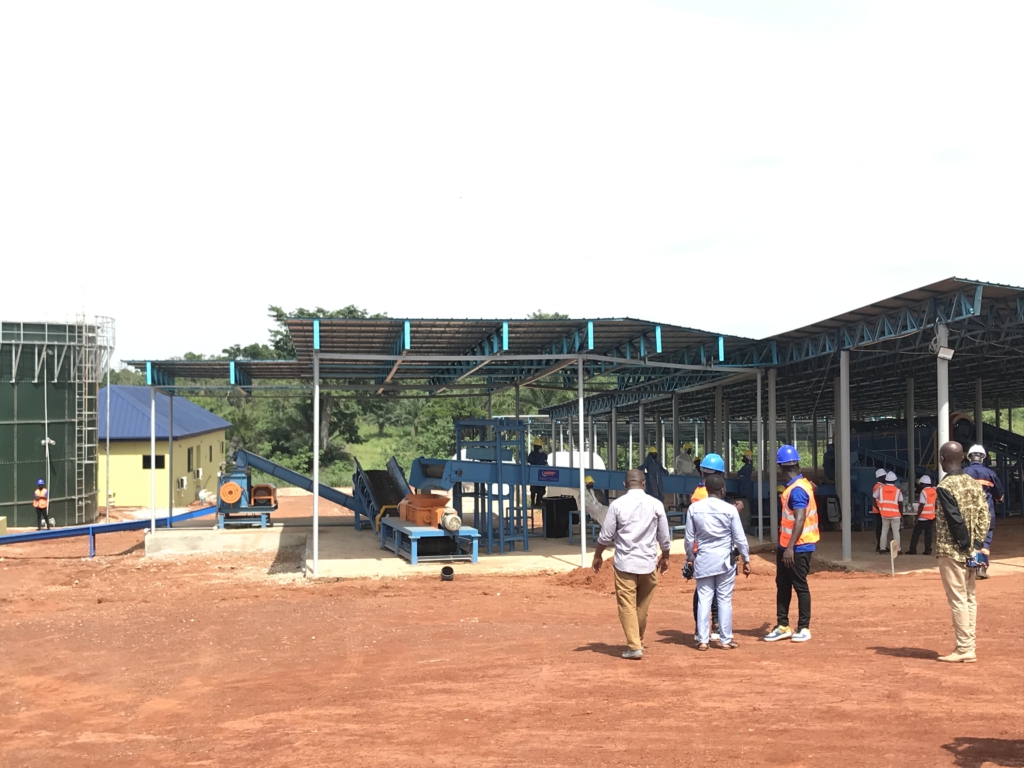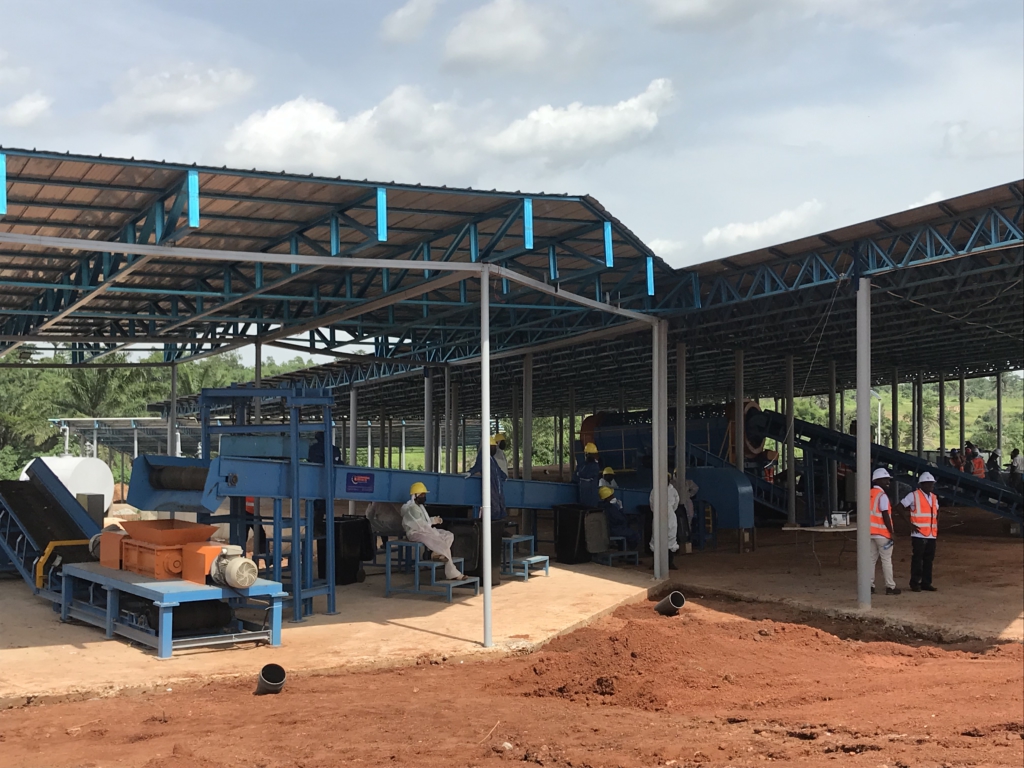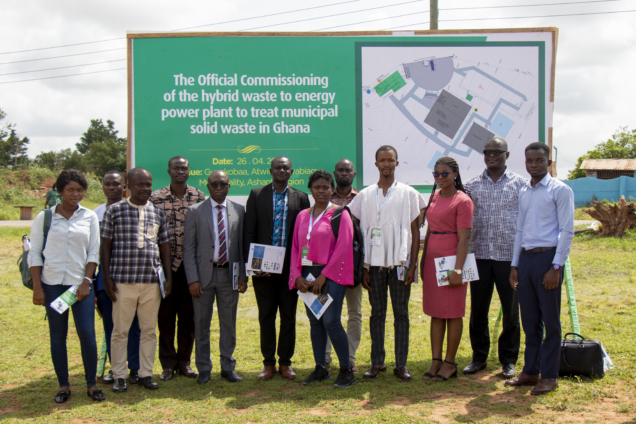Government through the Ministry of Energy is anticipating a significant utilization of renewable energy sources towards attaining the UN Sustainable Development Goal 7 by 2030.
The Ministry targets to harness 10 per cent of Ghana’s renewable energy resources in consolidating the country’s energy security.
Deputy Minister of Energy, William Owuraku Aidoo, indicated the Ministry is in the process of fully harnessing and including renewable energy in Ghana’s electricity mix.

He spoke at the official commissioning of a 400Kw hybrid waste-to-energy power plant at Gyankobaa in the Ashanti region.
“The Ministry of Energy is undertaking a nationwide consultation as part of the efforts to develop a national energy transition action plan.
“Even though Ghana is endowed with renewable energy resources such as solar, hydro and wind, the ministry is still in the process of developing them with a target of 10% renewable energy penetration by 2030,” he said.
The hybrid waste-to-energy facility aims at developing concepts for waste segregation and its subsequent conversion to energy through research and capacity building.
In building high-level local expertise for the set target, some postgraduate students of the University of Energy and Natural Resource (UENR) are also receiving research training.

Vice Chancellor of the University, Professor Elvis Asare-Bediako, is enthused at their contribution to Ghana’s transitioning from traditional hydroelectricity to renewable energy source.
“With this project, the University hopes to contribute to the Sustainable Development Goals and help solve key challenges in the country’s economic development.
“The students are undergoing training to convert agricultural waste to energy with some foreign institutions,” he said.
The project, which is still under construction, will accommodate a Resource Description Framework (RDF) plant, carbon dioxide gas capture, a direct biogas steam reformation plant and a methanation plant.
A lecturer with the Department of Agricultural and Bioresources-UENR, Dr Edward Awafo, indicated the facility would contribute to reducing the tons of environmental waste, including plastics.
“There is a lot of waste including plastics and organics that are being generated and we need to find sustainable ways of managing this waste. In a bid to recover energy from these resources, this hybrid plant has been constructed to manage waste sustainably.
“The municipal solid waste will be converted to energy through three major lines using hybrid biogas, pyrolysis and solar PV technologies,” he said.
Latest Stories
-
Fire devour parts of Maaha Beach Resort in Western Region
1 hour -
No dividend for ETI shareholders as Board focuses on servicing debts, strengthening balance sheet
1 hour -
‘Insufficient food consumption’ situation improves across 7 West African countries
2 hours -
Tears and heartbreak over tragic story of South African girl sold by her mother
2 hours -
Kenyan president apologises to Tanzania over deportation row
2 hours -
South Africans pay tribute to acting ‘icon’ Chweneyagae who died age 40
2 hours -
Fleeing US deportations, it took this family three tries to enter Canada
3 hours -
Elon Musk bids farewell to White House but says DOGE will continue
3 hours -
Trump administration to ‘aggressively’ revoke visas of Chinese students
3 hours -
US trade court blocks Trump’s sweeping tariffs
3 hours -
Giant of African literature Ngũgĩ wa Thiong’o dies aged 87
4 hours -
Parliament set to reintroduce anti-LGBTQ+ Bill
4 hours -
Cats distinguish owner’s smell from stranger’s, study finds
5 hours -
Trump appears to set Putin ‘two-week’ deadline on Ukraine
5 hours -
Telegram announces partnership with Musk’s xAI
5 hours

